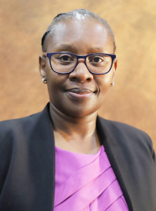
By Nomonde Mnukwa
There was a time when the story of Africa was told by voices outside the continent who looked at our continent through a tainted lens. However, this has changed and Africans are now proudly sharing our own stories of development and triumph.
During the 2024 iteration of Africa Communications Week, which coincides with Africa Month, we were once again challenging the narrative of doom and gloom, by profiling success stories of Africa to the world.
Africa Communications Week held from 20- 24 May 2024 brought together communicators, professionals in the media space and thought leaders from around the globe. The aim is to enhance communication in Africa, by communicating developments and positioning Africa as an attractive investment destination.
This year’s Africa Communication Week was convened under the theme: “Influence”. It explored how influential leaders, policymakers and organisations have the ability to shape agendas, implement impactful policies, and mobilise resources towards sustainable development goals. This was important to driving change, fostering innovation and attracting investment on the continent to advance.
Convening Africa Communications Week on the cusp of our Africa Day celebration was an opportunity to promote African Unity and deeper integration and recommit Africa to a shared destiny. Africa Month is a crucial part of our yearly calendar as we acknowledge the work done by the African Union and celebrate pan-Africanism.
It is also an opportunity to unlock economic opportunities in line with the African Continental Free Trade Area AfCFTA, which hold enormous benefits for the continent. The AfCFTA is now operational with a number of countries including South Africa already trading under the agreement.
AfCFTA create a single continental market that allows African countries to diversify their exports, attract foreign direct investment and grow their economies. In support of AFCFTA, the AU dedicated this year’s Africa Day towards accelerating the implementation of the Africa Continental Free Trade Areas.
As we mark, this momentous occasion for our continent, the communications sector has an important role to play in profiling the free trade area and its benefits across the continent. By telling our stories, we can ensure that our countries, economies and people benefit from the implementation of AFCFTA.
South Africa will mark Africa Month held under “Celebrating 30 Years of Freedom: Building a Better Africa and a Better World’’. The programme celebrates the contribution of African nation in helping South Africa reach this national milestone.
There is no doubt that the freedom we enjoy today would not be possible without the commitment and selflessness of the men and women who sacrificed their lives, both in South Africa and on the continent. Their sacrifices have enabled us to imagine a world where Africans are at the heart of our own development and success.
During Africa Communications Week, communication professionals will reflect on how far we have come as a nation and continent. Undoubtedly, much has been achieved, however challenges remain and one of the issues we face as communicators on the continent is the communication divide. Access to information is the lifeblood of society, and the old saying that knowledge is power continues to ring true.
Advancements in technology has resulted in a new tech-savvy audience that is globally connected. This has necessitated a shift in focus to mobile communications, social media and using improved techniques and engagement tools.
How we bridge this divide will be top of mind for communicators during Africa Communications Week, and how we approach communication has to change if we are to keep up with the needs of a changing audience.
We can do so by tapping into new media spaces and by seizing the opportunity presented to us new digital platforms. By doing so we can rewrite the script of Africa by promoting inclusive growth, empowering marginalized communities, and advocating for an informed people where no one is left behind.
*Nomonde Mnukwa is Acting Director-General of the GCIS


